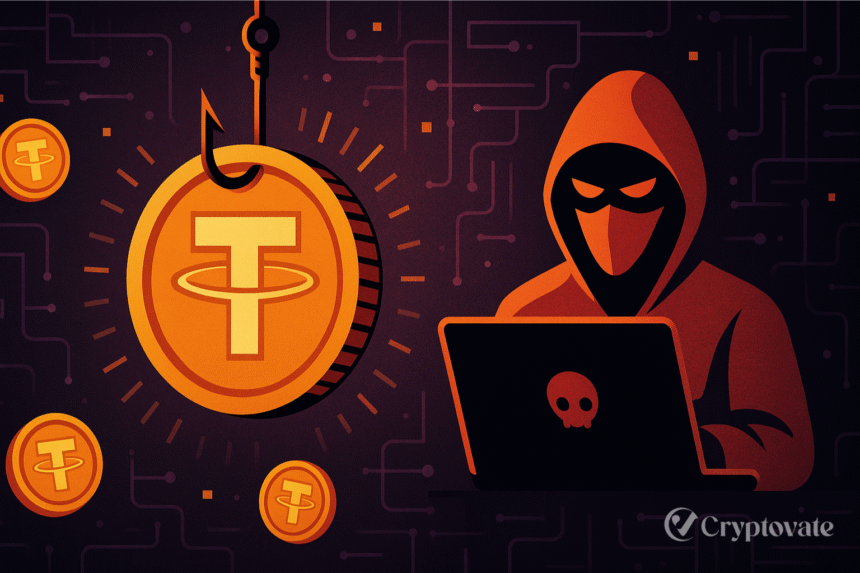– Ad –
| Getting your Trinity Audio player ready... |
On May 26, 2025, a crypto investor suffered a major loss of $2.6 million in USDT stablecoins after falling prey to a zero-value transfer phishing scam that drained the funds within three hours. This incident, reported by Cyvers, has sent shockwaves through the crypto community, highlighting the dangers of address poisoning and the need for heightened vigilance in the Web3 space.
What Happened in the $2.6M Stablecoin Scam?
The scam unfolded in two stages. Initially, the victim lost $843,000 in USDT due to a zero-value transfer scam. Merely three hours later, the same attacker struck again, stealing an additional $1.75 million in USDT—bringing the total loss to a staggering $2.6 million. Zero-value transfer scams exploit Ethereum’s transfer function to create fake transactions that appear in a user’s history. These transactions trick users into copying a fraudulent address, which closely mimics a legitimate one, leading them to send funds to the scammer.
Cyvers, a crypto compliance firm, shared the details of this attack on X, warning the community about the growing threat of such scams.
The Growing Threat of Address Poisoning
Address poisoning is a sophisticated scam where attackers create wallet addresses that closely resemble legitimate ones. A study from January 2025 found that between 2022 and 2024, more than 270 million poisoning attempts were recorded on BNB Chain and Ethereum, resulting in $83 million lost across 6,000 successful attacks. This $2.6M heist is a stark reminder of how scammers exploit human error—like failing to double-check wallet addresses—leading to massive financial losses.
Also Read: Coinbase Hack Exposed: How a $20M Ransom Demand Shook the Crypto Giant
How to Protect Yourself from Zero-Value Scams
To stay safe, always verify wallet addresses character by character before sending funds. Use trusted wallet apps like Trust Wallet, which offer security alerts for risky transactions. Additionally, enabling two-factor authentication (2FA) and using hardware wallets can add layers of protection against phishing attacks in the crypto space.
FAQs
What is a zero-value transfer scam?
A zero-value transfer scam involves fake transactions that trick users into sending funds to a scammer’s address by mimicking legitimate transaction history.
How can I avoid address poisoning in crypto?
Double-check wallet addresses, use secure wallet apps with phishing alerts, and enable 2FA to reduce the risk of falling for address poisoning scams.
Are stablecoins safe from phishing attacks?
Stablecoins like USDT are not immune to phishing. Always verify addresses and be cautious of suspicious transactions to protect your assets.

















